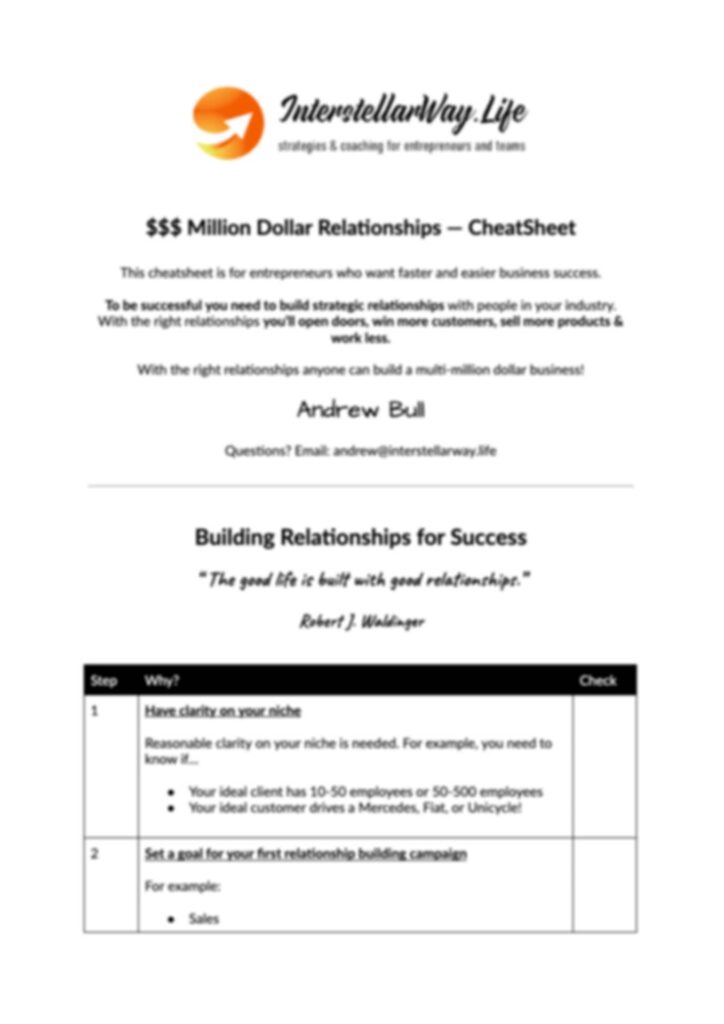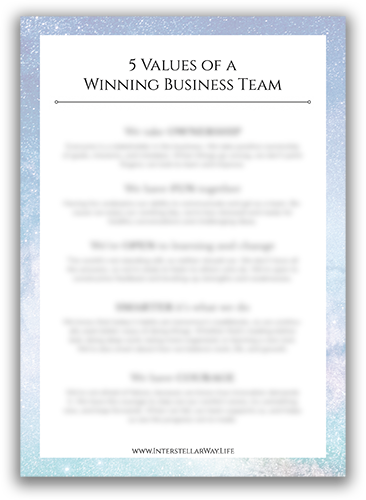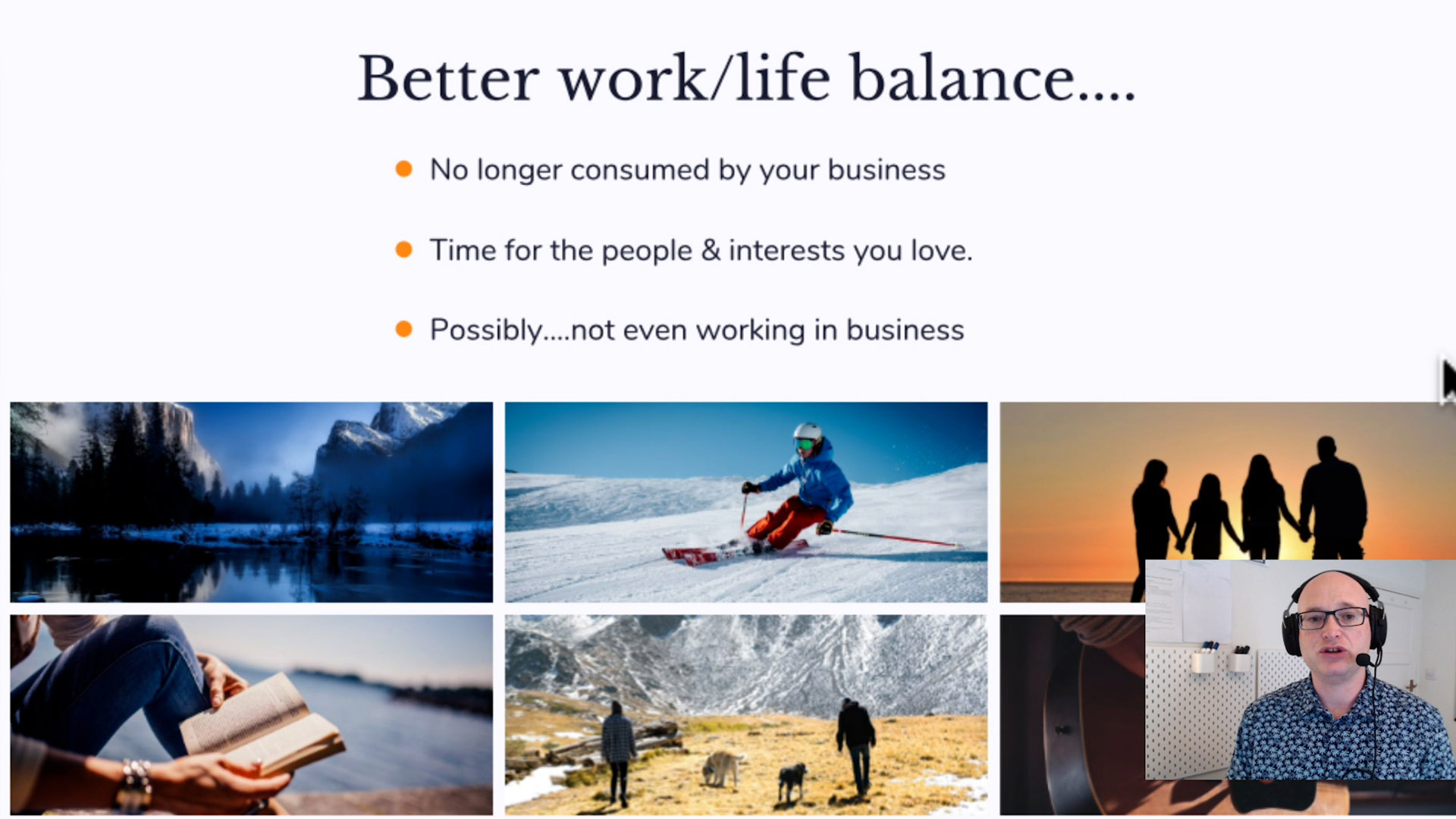Interstellar Business Show
Podcast for Technology CEOs and their teams.
It's time to grow your mind, elevate performance, and own your future 🚀

Interstellar Business Show
Episode: 0022
Cyber Security: Why The New Model Is Transforming Business Performance. With Ciaran Kenny.
Featuring....

Episode Introduction
Introduction
Today, I’m joined by Ciaran Kenny, Security Lead at Macnamara ICT.
Ciaran is a top level authority on information management and security…
and I know that you will benefit from listening to his ideas.
In today’s episode, we’ll look at
- The IT couch… where and why your vital information is getting lost
- How the old approach to IT and IT support is leaving companies vulnerable to the bad guys
- How to get to grips with information in your business
- Plus, actionable steps that you can take to improve your information management
Please make sure you subscribe and follow us wherever you’re listening today. So you never miss an episode again.
Episode notes & resources
Love this episode? Please leave a review here
Listen to more episodes here: Interstellar.Show
Get Andrew’s free Resources for Tech companies with teams → https://bit.ly/2Ygyoij
Join Andrew’s Interstellar Community → https://interstellarway.life/sign-up-for-newsletter/
More about Paulina Tenner… entrepreneur, Angel investor, upcoming author
Read the Macnamara blog at https://macnamara.co.uk/blog
Transcript
Please note, this transcription is autogenerated, so there may be errors.
[00:00:00]
[00:00:00] Andrew Bull: Let me ask you a question. Do you think information is boring? I mean, it is kind of boring when you first think about it. Who wants to take information out for dinner? Or meet information for a beer, no one that’s who, but here’s the thing.
[00:00:17] Information is vitally important to our companies. We might not like it or think it’s sexy. But when we can’t get our hands on the information we need. Or when people try to hack into our business and do bad things to our information. We suddenly realize how important that information is to our business.
[00:00:42] And if we’re honest with ourselves, We’d probably admit. That we don’t spend enough time. Thinking about how we manage our information.
[00:00:53] If we did. We might do a better job of keeping our company secure. And also [00:01:00] improve the performance of our business, because if we weren’t wasting time trying to find important folders and files and project files,
[00:01:10] Our team and ourselves, we’ll probably be able to get more done quicker and easier.
[00:01:16] Now to help you get a grip on this important topic. I’ve invited an expert. In the subject of information, security and information management onto today’s show. Today I’m joined by Karen Kenney security lead at McNamara ICT.
[00:01:35] Kiran is a top level of authority on information management and security. And I know that you will benefit from listening to his ideas.
[00:01:46] In today’s episode, we’ll look at the it couch where and why your information is getting lost. How the old approach to it. He is leaving companies vulnerable [00:02:00] to the bad guys, how to get to grips with the information inside your business.
[00:02:06] Plus actionable steps that you can take.
[00:02:10] Now, before we get started and meet Karen, please make sure you subscribe and follow us wherever you’re listening today. So you never miss an episode again.
[00:02:22]
[00:02:45] Andrew Bull: Today I’m joined by Ciaran Kenny. Welcome Ciaran.
[00:02:49] Ciaran Kenny: Thanks very much Andrew, a pleasure to be here.
[00:02:52] Andrew Bull: So I’ve actually known Ciaran for a number of years now. So he’s a great guy and he works in the realm of IT, I will let [00:03:00] Ciaran explain what he does and what his title is.
[00:03:03] Ciaran Kenny: I’m the security lead for Macnamara ICT. We work as, an it company with small businesses between maybe five or 10 users, or is up to 200 users.
[00:03:18] My role in security takes me across the whole operation of what we do and a lot of what the customers do. So I work with clients on their security, but that takes me, I’m working with them on their whole business systems, if you like.
[00:03:38] Andrew Bull: So that’s an entry point for you, understanding how their whole approach to data and information really works?
[00:03:45] Ciaran Kenny: That’s absolutely right.
[00:03:46] Andrew Bull: Yeah, I like that. So cybersecurity is the battering Ram for which we can go into the business and really start understanding how it works. In some ways the data and information that we have inside our businesses – is a bit of a [00:04:00] tin of spaghetti that we don’t know exists as well.
[00:04:02] Maybe?
[00:04:04] Ciaran Kenny: Very much so there and a lot of businesses, you tend to work with the surface layer of information if you like. But beneath that, there’s a whole accumulation of information that’s built up over the years, that from time to time, you do have to delve into, and that tends to be a painful experience sometimes, disentangling where something is.
[00:04:28] Andrew Bull: I think for many of us business people we want to have as little to do with the data, as possible. We’re quite happy to engage with the front end of our software and so on, but anything deeper than that, you’ll probably see us all running for the woods very quickly.
[00:04:44] Do you have that experience when you start talking about data and information with people, do they start glazing over and start looking at their watches and phones a lot?
[00:04:53] Ciaran Kenny: Very much so. It’s a difficult topic for business people because people tend [00:05:00] to want to know that every piece of information they’ve ever dealt with is still there somewhere. But the fine details of exactly where it is. It’s a simultaneously boring and scary conversation.
[00:05:15] If you see what Business people, there’s a tendency let’s admit as a, sort of a control freak query thing that goes on a lot. A lot of the time, I think it goes hand in hand with the mentality for running a business. So you never want to throw anything away, but you get this accumulation.
[00:05:33] It all builds up and it’s a it’s a kind of a an accumulation that’s, it’s a bit like if you have a seller around, when you keep pulling stuff down there it’s there, but it fills up and eventually becomes very difficult to find anything there.
[00:05:50] Andrew Bull: Is what you’re saying. That there’s no difference between my server and my attic, and I don’t know, half of what’s in my attic anymore. And the same as with my sever.
[00:05:59] Ciaran Kenny: [00:06:00] Yes.
[00:06:00] Andrew Bull: Okay. Okay. And I’m worried because it’s fine that I’ve got random squash rackets in my loft, but but yeah, I worried like what’s on my server now.
[00:06:09] I completely don’t know anymore because it’s so old, but then you feel like you need to keep it.
[00:06:15] Ciaran Kenny: Yeah.
[00:06:15] Andrew Bull: And what actually made me think about is like the distaste that we have information, it’s like a heart rate monitor, right? If you’re in hospital, like talking about a heart rate monitor and how it works is not very exciting, but when you’re plugged into one, it suddenly becomes so much more
[00:06:31] Ciaran Kenny: Absolutely. Absolutely. And just to labor the analogy a little bit way, information is the lifeblood of business and the edge, it’s what flows through and makes a business work. Pretty much all of us now are information workers and information is what we work with.
[00:06:50] Andrew Bull: Yeah. And that’s a really interesting thought actually, because I suppose even from my perspective where I don’t have a lot of information, but I’m [00:07:00] so easily losing track of it often as well. So I might write an article on LinkedIn and then actually not know, or maybe write a really long comment on someone’s post on LinkedIn, but then not knowing where it is.
[00:07:13] And then actually that could have been a blog post or a podcast, and I could be leveraging it if I keep.
[00:07:18] Ciaran Kenny: And part of what adds to the difficulty is the the tools that are out there to help us that are so easy to use at first, but become insidious because we have all these different tools that have parts of our information. And now we have to remember which tool we use to do something.
[00:07:38] If you say what I mean.
[00:07:39] Andrew Bull: Yes. Yes I do. And actually I have an app on my browser, which helps me collect all my tools, but it’s also realized it’s a kind of madness as well. At the same time it’s an attempt to bring in sanity to a system, which sometimes just doesn’t seem sane at all, but we will grit and bear it, and then we [00:08:00] scramble around, down the back of our mental couch to pull out those nuggets of information when we need them or hope that we can find those threads.
[00:08:10] Ciaran Kenny: Absolutely. That’s very well sad actually scrabbling around, down the back of the mental couch. It’s but except there are loads of couches as these tools, which are often free or close to free very easy to use, very easy to implement, but they can be a bit of a snare. It can be hard to get away from them again.
[00:08:32] As they accumulate, if you see what I mean.
[00:08:35] Andrew Bull: Yeah, I think maybe there’s a whole new industry here just on helping you manage your tools. And we are to disconnect and reconnect with wellness that you need to. That
[00:08:44] Ciaran Kenny: Absolutely.
[00:08:45] Andrew Bull: We’ve actually wandered into a conversation now, which is really interesting, but it’s not normally how we start the show have such a interesting conversation.
[00:08:54] Let’s move onto the first segment of the show where we’re going to learn a little bit more about Ciaran and [00:09:00] his secret side. This first segment is called
[00:09:14] Ciaran, what is your secret?
[00:09:17] Ciaran Kenny: Andrew, the secret I’m going to share today is the fact that my worst ever exam result was 11% in a latin exam at secondary schools.
[00:09:29] Andrew Bull: Now it’s 11% actually bad. It seems bad from what I can remember at school, but I guess it depends how we grade these things.
[00:09:35] Ciaran Kenny: It’s bad.
[00:09:37] Andrew Bull: Oh, okay.
[00:09:39] Ciaran Kenny: There’s I think at that time 40% would have been a pass mark. 11% was a disastrous result. I would say. I remember. To this day.
[00:09:52] Andrew Bull: oh, it burned into your memory. Okay.
[00:09:55] Ciaran Kenny: Absolutely. Cause I was up until that point, I was pretty confident even if I [00:10:00] didn’t know a subject that I could bask as well to know, to, to pass an exam
[00:10:05] Andrew Bull: Yeah, I can say I see. That makes sense. So did you walk up to the pin, but was it one of those things where the, all the results from the pin boards? Yeah.
[00:10:12] Ciaran Kenny: Exactly,
[00:10:13] Andrew Bull: We used to sit there with all your charms and then you also your grades at the same time.
[00:10:17] Ciaran Kenny: exactly. And I just tried to melt away and that particular one. So it’s hard to bluff your way, 11% staring you in the face.
[00:10:29] Andrew Bull: I think we’ve all been there. Yeah. I didn’t have a great track record with exempt in some situations. How did your history with school and education shape your approach to business? Has it impacted how you’ve approached it?
[00:10:43] Ciaran Kenny: Fairly much. So I think, yeah, because I have to confess, I didn’t particularly enjoy school. But that’s a one 11% example is one instant. But I D I didn’t enjoy school very much. And in particular, I didn’t [00:11:00] find a place where I felt I learned stuff. It was more a case of jumping through hoops.
[00:11:06] And then I rediscovered education then in my twenties have all was, had, some involvement in education ever since whether doing courses or do you know, doing degrees and things like that. PA part-time. But the big thing I’ve learned from it is apart from the content that I learned in these various courses, it’s just the value of following interests.
[00:11:34] I never felt school was about engaging us or addressing our interests, but in adult education following one’s interests has been very rewarding and that concept has led me in business as well. And that, for example we started out as a, an it support company and I [00:12:00] developed an interest in security and my initial interest was academic, but that then became a whole wing of our company if you like. And gradually came to redefine what we did as a company. So from following an interest it translates into a successful business endeavor.
[00:12:23] Andrew Bull: Because you’ve got to have passion, about what you do as well.
[00:12:26] Ciaran Kenny: I think you really do. I don’t tend to think of it in terms of passion. I think that in terms of that sort of desire for knowledge we have a big emphasis on that and the company that people should be able to pursue knowledge in the realm in which we operate.
[00:12:43] We don’t encourage people to go off and study geography or whatever, but, within our kind of the parameters in which we operate, we’re very encouraging. If people are keen to, to learn something.
[00:12:57] Andrew Bull: That’s great to hear that you’ve got a growth [00:13:00] culture within your business.
[00:13:02] Ciaran Kenny: But kind of personal growth as well as business growth.
[00:13:06] Andrew Bull: Let’s get into that more, a bit later in the show right now, I want to jump forward into the next segment of the show
[00:13:13]
[00:13:17] Andrew Bull: so in this section of the show, our guests and leaders share a big idea or insight that will make you think again about your tech business .
[00:13:26] What’s the big idea that you’ve got to share with us today Ciaran?
[00:13:31] Ciaran Kenny: We’re a tech company traditionally understood as an it support company. And I’ve come to believe over the last couple of years that essentially our industry model is dead. The it support model is dead, but it’s worse than that. It’s become a zombie. If you like, it’s come back to life in a way that is actually dangerous to the businesses that rely on it support. In the [00:14:00] world we live in now, where businesses, face significant cyber threats to their existence.
[00:14:08] As businesses, the IT support model that’s applied to those companies is actually introducing risk to those companies. It’s not just that it’s not very good for supporting the business. I’m arguing that it’s actually become dangerous.
[00:14:26] Andrew Bull: And how has it become dangerous?
[00:14:28] Ciaran Kenny: So so if you think about the it support model, it’s all about this idea of responsiveness and proactivity. So it support companies compete on. We will respond to within two minutes , and then the challenger comes in and we will respond to in line two seconds. We’ll have so on the one hand we have the responsiveness.
[00:14:54] On the other hand, we have this idea of proactivity and you’ve got this mantra in it that [00:15:00] we fix problems before you know about them. Now, those two things, responsiveness and productivity are achieved by. Having a high degree of control over the business technology. If you think how cyber attacks work.
[00:15:19] So if you can attack an organization that has control over the technology of another organization, in fact, multiple other organizations, think how you can leave religion that attack. And I don’t know if your listeners are well, some of them will be aware of it, but earlier this year we have the Cassiah incident where a supplier of software to companies like mine was compromised.
[00:15:51] And through them companies like Macnamara were compromised. And through that their clients were compromised. We have some [00:16:00] difficulty estimating the scale. Of what happened there, but it was big. Very big.
[00:16:04] Andrew Bull: Wow. And actually from my conversations with other people, I know for example, right now in the food industry, that there are companies right now being held to ransom by hackers.
[00:16:17] Ciaran Kenny: Yep, absolutely. Absolutely. And it takes effort to compromise the system so that you and hold a company to ransom. Now, if you were to canny, cybercriminal what better company to compromise than an it support company if through having done. So you can go on to compromise all of their clients and most, established it.
[00:16:40] Companies will have 50 to a couple of hundred clients. You can get them all in one go. And that’s because of this focus, which is slightly nonsensical, hold on, fixing problems before, Part of responding in 90 seconds. Do you really need the, I can’t [00:17:00] print at the moment. Is it actually going to be critical, but that’s fixed in 90 seconds or is it actually going to be practical that it’s fixed before about how would it be fixed for you?
[00:17:09] How would it be a problem if you never knew about an actual fight?
[00:17:14] Now those concepts of responsiveness and productivity, they derive from where it companies came from back in the eighties and nineties, we were all working for bigger companies running their it. And we came out into the world to set up our own companies and bring these services to smaller businesses.
[00:17:39] But back then, back in the eighties or nineties, computers were not really. They didn’t work fairly well. Software didn’t work very well and users were not very good at using this stuff. So you needed that productivity and responsiveness, but computers [00:18:00] now, they’re not falling apart all the time.
[00:18:02] The way they used to 20 years ago, generally speaking, they work pretty well. And generally speaking, the software that runs on them works pretty well. And generally speaking, people are completely used to it. They know how to use word or Google docs or whatever it is. They know how to do it. They don’t need their hand held the way it used to be.
[00:18:26] Andrew Bull: Is this really about prioritization in some ways then? Whereas there’s an old priority of making sure that computers are up all the time and software is playing nicely with the printer, like you say against really the modern priority that we’re facing, which is of cybersecurity and like overwhelmed with data and all these other more challenging issues.
[00:18:50] And maybe the CEOs who are listening to the show right now might have to challenge themselves and say to themselves, is it [00:19:00] really that important that our printers rap all the time? Or is it more important that we’re much more robust and secure? Is this a choice that really people should be thinking.
[00:19:10] Ciaran Kenny: I think that’s exactly out Andrew. I think that’s exactly the way that people need to start asking themselves those questions now, because it’s a bit of a. a mutual game between it companies and their clients. But if I just go back for a second to that, we fix problems before you know about them.
[00:19:32] Strictly speaking not really true because what problems do occur? That generally speaking, you wouldn’t bother having an it company. If it only dealt with problems, you didn’t know about who want really. Now, if you’re a say you’re actually facing today, you’re really facing this information overwhelm like floods of information, passing through your business, which you try and keep hold [00:20:00] of all the time.
[00:20:01] And you’re facing a a certain amount of dread or that what the cyber criminals are doing around you. Now the, say my advice to say is you’re not going to address those issues by making sure that you can print in 90 seconds if the printer stops working, but it companies and CEOs collude with each other.
[00:20:30] Cause you know, as long as the computers are working on, the printers are working and So on, we’ll assume that generally speaking we’re okay. On the way you still have information passing through one, we can assume that the, it guys probably have a handle on the cyber security issue which they don’t generally speaking on less, they’ve dedicated a lot of effort to.
[00:20:53] I th my recommendation to see, I was just starts, just let’s accept [00:21:00] that Dell and HP and Microsoft and Google and Amazon and all those people, they do know what they’re doing. They, they have put together good systems that do work. You don’t need some bloke to come to, keep oiling them to make sure they work.
[00:21:16] It’s really slightly nonsensical. Now it’s okay to do things that are slightly nonsensical in business. Sometimes that can be reassuring and so on. But this particular piece of nonsense is also introducing a security risk. So it’s time to stop doing that. And in my opinion, and address the real issues, which are the, as I say, the flow of information through the systems and the interest that criminals have.
[00:21:49] And that flow of information on those systems.
[00:21:52] Andrew Bull: So when we talk about the flow of information, I think it’s really helpful to make that a less [00:22:00] abstract idea, because I understand right now I look at my computer and my service and I see that there’s information flowing through them.
[00:22:08] Let’s imagine that information has a value to it. What kind of information would it be that has a value that we need to manage better? Why are we talking about accounts, spreadsheets? What we talking about?
[00:22:20] Ciaran Kenny: So when we look at a business in terms of information, we find thorough. Essentially to part two kinds of information that are involved. One is the information that it takes to run the organization. So that might pay for example, financial reports. So the financial statements of the years trading and things like HR records, things like marketing ideas and so on.
[00:22:59] So [00:23:00] they, these are things that you run the business with and they’re going to be word documents and spreadsheets and PDFs. And of course, email, unfortunately that’s a whole other story, but that’s information that an organization needs in order to exist. And then you have a whole set of information.
[00:23:25] That’s operational information, that’s information. That’s a doubt, the service that the organization provides or the product that provides. So that will be for organizations that are involved in projects that will be project information, or you might have projects or you might have products, or you might have services.
[00:23:49] And all of these things accumulate information That again, word documents, PDF some and so forth. And what we tend [00:24:00] to find a lot of the time is that first of all, these two types of information are not clearly distinguished within an organization. And second as well, Being mixed together. These two types of information are just strip across multiple systems.
[00:24:23] Some of them are online and some of them are they in house now for any part of the organization or any individual within the organization that needs to bear in mind what I said earlier, that we’re all information workers and that’s essentially what we work with. And it’s quite, it’s actually quite hard to come up with examples of people who simply don’t use information in their working life.
[00:24:52] But there, there are examples, but let’s say if you sit on a desk as part of your job, or even [00:25:00] if you’ve done that, the chances are that there’s a flow of information involved. Putting your finger on the right information at the right time and not being able to put your finger on the wrong information, but I don’t mean just not tending to put your finger on the wrong information, but not being able to really is a for businesses is a like a productivity revolution. So much time in business is spent trying to find information, that can be as simple as trying to find a password for a system to finding that proposal that we did for that guy. That more or less is the same as this proposal where we’re doing that. If we could just get hold of that and modify it.
[00:25:54] I found the PDF, but I can’t find the original and it’s all like, When you [00:26:00] work and I’ve worked with, more than a hundred companies over the last few years. you know, I spent time in their offices. I spent time with the CEOs and junior and senior people.
[00:26:12] And if you look at a working day, I, I haven’t got the precise statistic, but I think I’d be confident in saying that more than half of the time is spent looking for information. Imagine that,
[00:26:28] Andrew Bull: Yeah.
[00:26:29] So I suppose that would be an interesting thing for a company to do is actually to start tracking how long people are actually reaching around and trying to search and find things because you’re right. That could be a real hidden cost that businesses are facing.
[00:26:42] Ciaran Kenny: Yeah.
[00:26:43] absolutely. Absolutely. Of course, people don’t necessarily want to admit that they can’t find something. If you think your, you are the person who was responsible for that proposal. So when you’re asked for it, you’re going to say, where it is [00:27:00] and but that then you go through the stress and the pain of actually trying to find this.
[00:27:07] Andrew Bull: Yeah, I know what that’s like. Yeah, you vote. Yeah. And it’s funny, isn’t it? Because you often, for example, you might use like a graphics piece of software or something like an Adobe product, and then you can quickly find your last piece of work on it because it will have it in the recent files menu, but then you need to archive that file because it’s taking up too much room on your local drive and then you go, and then two months later, you’re like, where the heck is that file gone?
[00:27:37] Ciaran Kenny: exactly. Exactly.
[00:27:38] Andrew Bull: So if we’re going to summarize this situation, I know we’re talking about it support because that’s part of what your company offers, but in a way of we’re to broaden that out and think about this as a philosophy, what we’re saying is because the philosophy has been for it support. To keep things [00:28:00] up and running all the time.
[00:28:02] That’s overridden the need to keep information flowing in a way that keeps a team working effectively. And also that keeps information secure from the bad guys. Is that right?
[00:28:16] Ciaran Kenny: That’s exactly right?
[00:28:17] The one thing I would add there is I don’t make a sharp distinction between keeping the information flowing to maintain productivity and keeping the information safe from the bad guys. They’re the same thing. So the way I came to my understanding of what’s going on with information and businesses is from a security perspective.
[00:28:41] As I said earlier, that’s where I came at it from. So I started, as I got into security I realized that, in fact, we’re not talking about security of it systems, we’re talking about security of information. And once I had that sort of road to [00:29:00] Damascus moment, it was a flash of lightning to understand that. I then, with companies I was working with, I of course, had to look at the information and how it flows and how it stores, and so on initially thinking, I need to know what we’re dealing with air in order to secure.
[00:29:20] But the kind of discovery I made was true. Trying to secure. As I discovered water a swamp, it usually is. And most companies by, oh, let me sound like president Trump by draining the swamp. We improved security, but we also improved productivity, which came as a surprise to me.
[00:29:47] Andrew Bull: That makes sense. Okay. So now I’m going to ask you two. Try and share a story with us. I’m going to say, tell us about nightmare on information street. [00:30:00] Tell us about an experience that you’ve had with a company and you don’t need to name a name of the company or anything that’s revealing, but where you’ve looked at a company, I gone, oh my gosh, this is just a horror.
[00:30:16] And like it’s so dangerous. This company is like, so open to outside threats right now. And how they’re working is so unproductive. Can you share that horror story with.
[00:30:29] Ciaran Kenny: I’ll go to tell you the truth I’ve seen. So man, but like the default position is companies are open to outside threats, but I can think of. Not that long ago. Example, lucky, if you work in an environment where they, a server are essentially the same with SharePoint, but you have shares on the server.
[00:30:53] And so you have your local computer, which is drive C and then you have, drive [00:31:00] M for marketing drive, whatever you have half a dozen different drives. I remember going into a new client and they had 72 drives.
[00:31:15] Andrew Bull: This isn’t coming out very well on the podcast. So I’m just sitting here open mouth, because that is crazy.
[00:31:21] Ciaran Kenny: Yeah. But it’s interesting. That was their attempt because they felt okay. We do have to, we do have to have multiple drivers. We have to categorize our information and we do have to have some security boundaries within the organization just to, they have more drives than they are people just about, I think they had about 60 or 70 people, but I remember it was 72 drives.
[00:31:52] And that was their attempt to get on top of this on a well meaning attempt. I can understand it, So you asked about the [00:32:00] security implications of that sort of thing. What you simply can’t manage that, that, you’re applying different permissions to different drives.
[00:32:08] You can’t manage it. It’s impossible. The, that’s just too big number to deal with and if it happened that way, because they were trying to categorize their information. So again, if you think. Business, internal, external you just can’t come up with 72 different categories of information.
[00:32:25] They don’t exist.
[00:32:28] Andrew Bull: Wow. Maybe the cat had a folder. I don’t know.
[00:32:32] Ciaran Kenny: Exactly. Exactly.
[00:32:33] Andrew Bull: I feel like we’ve understood the problem now that there’s this old fashioned idea about how to take care of an it system. And it seems like approaching it from the angle of just trying to make sure your printers online and ready to print is it shouldn’t be the focus.
[00:32:50] The focus should be on making sure information flows smoothly and safely. And those two are one and the same thing, but how, if I’m a CEO or work at a [00:33:00] tech company, can I start taking action on this?
[00:33:03] Ciaran Kenny: Yeah. Okay. I would say if you’re a CEO and you’ve listened to this podcast and you fail. Yeah. Okay. Maybe they’re onto something here. Maybe I need a bit of further reading here or whatever. Now this?
[00:33:16] is going to sound like the most boring nerdy thing I could possibly say.
[00:33:22] But what I would do is face up to GDPR to take, say to yourself, okay, I’m going to give myself an hour And I’m going to figure out what GDPR is now the best place to do that is on the ICO, the information commissioner’s website, icl.org. Now a lot of CEOs, and let’s say, medium, small to medium size organizations, a lot of CEOs.
[00:33:53] Dealt with GDPR a couple of years back and in 2018. And they had their privacy policy on their website. [00:34:00] They written
[00:34:01] Andrew Bull: And I’m just going to interrupt you very quickly and say at this point, a lot of CDC will be going, oh no, not GDPR. It’s the most horrible topic
[00:34:11] But you’re saying this is very critical.
[00:34:14] Ciaran Kenny: yeah. Now, and it’s interesting that you say that’s the most horrible topic ever. And I know that is the general feeling amongst people. Who’ve never looked at us. This is the, but so you’re a C you know it applies to you. It’s a bit of a, sort of a shadow there and you know that what you did back in 2018, wasn’t quite right.
[00:34:36] Now the interesting thing, I’m not suggesting you actually read the legislation, just go onto the ICMs website and figure out it’s a very good website. Figure out how it applies to you. Now, what you discover there is that GDPR is all about information management and the ICL website is all about information [00:35:00] management based on GDPR.
[00:35:02] Now, if you’re a C and you can just about one hour to this task, what you’ll come in with of that IRR is an understanding of what information management actually is one and two. You’ll relieve yourself of your fear of GDPR. It’s not that often that I know it’s perceived as boring, but in my opinion, that’s a bit of a disguise for the fact that the people are also afraid.
[00:35:34] Andrew Bull: So it’s a way of being a bit apathetic about it, perhaps.
[00:35:38] Ciaran Kenny: Exactly. Exactly. And hoping it’ll go away. Which of course my issue with the way it is a you origin legislation. But Bart it by looking at how it applies to your business, you will take a leap forward in the concept of information management.[00:36:00]
[00:36:00] So even if you don’t do anything with us, you’ll take a leap forward in your understanding of information, managing. Particularly the difference between information management, an it support.
[00:36:14] Andrew Bull: okay. Yeah. And I think that’s important. I think you’re right. It’s people could look at these things and think they’re boring and they don’t want to do them, but actually something which seemed boring on the surface could be extremely powerful in a way a computer itself is quite boring. Isn’t it? No one wants to take their computer down the pub for a pint at night.
[00:36:33] Do they?
[00:36:34] Ciaran Kenny: Absolutely. I’m not, unless you’re a nerd like, of which I have been for many years.
[00:36:40] Andrew Bull: Yeah. Okay. I suppose that’s a generalization. Then some people do want to say their computers down the pub, but I suppose the physical device in itself is boring. It’s what you do on it is what makes people want to take it down? The pub those people who want to do
[00:36:53] Ciaran Kenny: That’s absolutely right.
[00:36:54] Andrew Bull: So we have to have this mindset that, yeah, some stuff isn’t that exciting on the outside, [00:37:00] but it’s the gateway to actually doing things the better way for our business.
[00:37:04] And that’s how we need to.
[00:37:06] Ciaran Kenny: I agree. It’s very analogous to financial management in a business now, as, some business people prefer to.
[00:37:17] entirely leave that alone and and even outsource it. And it’s entirely, which I think is a mistake. I, I do believe that senior business people have absolute grip on the figures and it’s, and people say accountancy is boring.
[00:37:37] Yeah. Really money for business people is money boring for business people? I don’t think it is. I think they’re afraid or. It’s the same with information management, if we’re all information workers and if it’s really true, that information is what we work with. The idea of not being entirely on top of it is self-evidently a [00:38:00] business weakness.
[00:38:01] Andrew Bull: I think that’s a brilliant insight Ciaran. And I think that’s such a great way to think about this, because I think often, our emotions about something, whether it’s apathy or anger, maybe people might get angry about their, it not working. It all comes back to a thought which comes back to a belief.
[00:38:18] So if I’m getting angry that my IT’s not working, I might have the belief that IT should always be easy and it should always just work.
[00:38:26] And when my beliefs not met, I get angry. But then that comes back to a value that I then hold about myself about other things and the same probably true. know money, not wanting to be across on top of money because I think money’s boring, but ultimately it comes back to a belief or a value that maybe I’ve not got enough of it or I’m scared about it.
[00:38:47] I think that’s so insightful of you. I think we should move forward now into the next section of the show. And I think if people, by the way, want to get in touch with Ciaran and his team to talk about how to make [00:39:00] it work in this better modern way that Ciaran’s been sharing, where can they contact you?
[00:39:06] Ciaran Kenny: So we’re at macnamara-ict.co.uk. And my email address is Ciaran, C I a R a N at that domain macnamara-ict.co.uk.
[00:39:21] Andrew Bull: So what’s the big result that tech CEOs and their companies can get. If they rethink their approach to information and they take on this philosophy, that it shouldn’t be just about keeping your systems up and running. It should be about making your data flow in a way that helps your team get through their day, but also keep the bad guys out.
[00:39:50] What’s the big what’s the big result they can get if they changed their approach to IT.
[00:39:54] Ciaran Kenny: So the big results from the perspective of the CEO [00:40:00] is to take away that fear fash, the bad guys are circling. If and it’s just a matter of time before you’re the next target. If you understand what your. What you’re dealing with, you reduce or even eliminate that fair. So there’s a, there is a big sort of personal result for the CEO.
[00:40:26] Now, the other result is just an enormous uplift in productivity. They, as I mentioned earlier, just imagine if you could eliminate all that time that spent looking for information. Now I am a side effect of all. This is because you really, you deploy some tools and techniques to achieve this that are more familiar in large corporate [00:41:00] organizations than in smaller organizations.
[00:41:02] So the team, they feel good about that. They feel good about being looked after. That the company cares about how easy it is for them to do their job and cares about how safe they are and doing the job and treats them with the same respect they would gash if they were working for a larger organization.
[00:41:31] It’s not always the case that larger organizations are more respectful, but I can be perceived as being so. Because you have these more developed organizational structures and rules and so on. Now, you might feel that, one of the great advantages of working for a smaller organization is the greater agility and the absence of rules, but it’s not always the case that people [00:42:00] want, that people can feel good about rules.
[00:42:06] They feel those rules are there to.
[00:42:08] help them and keep them safe.
[00:42:11] Andrew Bull: Or the rules, age, competency, and feeling that you’re good at your job as well.
[00:42:17] Ciaran Kenny: Yep. Yep. That’s absolutely right. Yeah.
[00:42:20] Andrew Bull: That’s very interesting food for thought. So if people want help to get this big result, where can they Ciaran?
[00:42:28] Ciaran Kenny: The first step I made an officer, I’m going to say holes where are the peoples come to, to talk about this? I recommended earlier having a look at the ICO website, but it is very good, but have a look at our website at www.macnamara-ict.co.uk. We have a pretty lively, active blog.
[00:42:52] Which reflects our interest in learning and then following our interests [00:43:00] where they go?
[00:43:00] But, I’m genuinely, I know everybody always says this, but people who want to engage with the subject, I’m very happy to talk to them. And it should be clear from our conversation that I’m, I know outside of the kind of day-to-day operation of the company.
[00:43:17] So if somebody phones me or emails me, they’re not going to go into a lead generation machine. I like talking to to people about the subject. And what I know about it comes entirely from dealing with business owners. I’m very happy to talk about it.
[00:43:36] Andrew Bull: That’s so wonderful to hear that you’re so open with having your inbox full of a new inquiry. He’s now. No, I jest, but. Really great guy. And he does know so much about cyber security and information issues. I know that because I’ve known Ciaran for a number of years now. So if you did reach out to Kiran, you [00:44:00] would be in very good hands and yeah.
[00:44:02] Check out the blog on the McNamara website as well. You can Google that and you will find them as well. I’m sure. So, well, I’ve got to say now is thanks for coming in care and
[00:44:13] Ciaran Kenny: Thank you very much for having me, Andrew. It was very enjoyable.
[00:44:17] Andrew Bull: Dear listener. I’m going to be a hundred percent honest with you. After I spoke with Karen. I went away and immediately changed how I handled some important it procedures. In my business. Our conversation may be realized. So I need to face up to my information challenges. And I need a better approach for dealing with information inside my company.
[00:44:53] Of course, Karen gave us some excellent starters and ideas for how we can do this. [00:45:00] But all of these big ideas are for nothing. If we don’t have the discipline to follow through on them. Because it’s one thing, knowing what you should be doing.
[00:45:10] And quite another sticking to those principles. And I’ve worked in companies where people know they should be doing. But end up not doing it. And they end up exposing the company to risk and making it harder to manage projects and find folders and files when you need to. So we need to have discipline. If we’re going to get better at managing our information, that’s an important part of the process.
[00:45:37] Because like any result in life that’s worth pursuing. You’ve just got to be disciplined if you want that result. All your followers will end up down the back of the it sofa. And you don’t know who else is going to be reaching down there to find them.
[00:45:55] And that’s the reality of the situation. Uh, none of us as [00:46:00] business leaders and business owners want that. So my biggest takeaways from today were that I need to face up to my information management challenges. I need to develop a better approach to information management. And I need to be disciplined and stick with it.
[00:46:16] And I think. The same applies for my team members as well. They need to stick with it. Anyone who’s coming into my business or work with me in some way, needs to stick to those principles. And I think that you, the listener should take that lesson away. As well with you.
[00:46:33] And don’t forget, you can reach out to care. And if you want help with information management, security, or just want to ask some questions . You’ll find the link to his website. Over on the show website. That’s www.interstellar.show. Now if you haven’t already done so hit that subscribe and follow button wherever you are today. Thanks for being here. Have courage. [00:47:00] Own your future take action.
[00:47:03]







